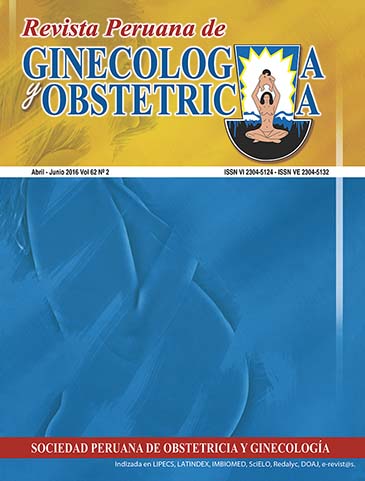Controversias en el tratamiento de la osteoporosis posmenopáusica
DOI:
https://doi.org/10.31403/rpgo.v62i1910Resumen
La osteoporosis es la enfermedad ósea más común en el mundo globalizado. Produce un alto impacto en el costo de la Salud Pública debido al incremento en forma progresiva en el correr del tiempo de vida del número de personas que la padecen, originada entre otros factores por la mayor expectativa de vida poblacional y disponer de nuevos procedimientos de diagnóstico, los que han conseguido gran penetración en las atenciones de salud. Las fracturas óseas son la principal consecuencia de esta enfermedad, las que originan dolor crónico, discapacidad y pérdida de la calidad de vida, pudiendo llevar inclusive a la muerte. Existen guías clínicas internacionales vigentes que se basan en evidencias de estudios clínicos aleatorizados y que dan pautas para el tratamiento de la osteoporosis y en especial de la forma posmenopáusica, ofreciendo tanto acciones farmacológicas como no farmacológicas. A raíz de resultados de estudios de seguimiento en gran número de pacientes, se discute en la actualidad aspectos de soporte terapéuticos tradicionales, como el uso y dosis de suplementos de calcio, sosteniéndose que en los que tienen una dieta adecuada de calcio existe un aparente no beneficio en su ingesta y es posible que un grupo de ellos puedan desarrollar eventos adversos como complicaciones, tales como constipación crónica, diverticulitis, litiasis renal o enfermedades cardiovasculares. Del mismo modo se reportan estudios que plantean la sugerencia de un uso con tiempo límite de bifosfonatos, sucediendo además de la pérdida de eficacia, la posibilidad de desarrollar eventos adversos como fracturas femorales atípicas y osteonecrosis de mandíbula. Este último evento adverso también es descrito con el uso de denosumab. O, por otro lado, en los que reciben teriperatida existe la infrecuente posibilidad de desarrollar neoplasias como el osteosarcoma, por lo que la recomendación es que su uso no debe superar los dos años. Finalmente, a raíz de las investigaciones sobre las concentraciones séricas de la vitamina D y su relación con los síntomas y signos que pueden dar su deficiencia, en las personas, y los posibles beneficios con acciones sobre la autoinmunidad, algunas neoplasias y una leve mejora de la masa ósea, da pie a sostener que el suplemento de vitamina D3 debe ser una parte importante en la terapia.Descargas
Los datos de descargas todavía no están disponibles.
Descargas
Publicado
2016-07-14
Cómo citar
Sotelo, W., & Acevedo Vásquez, E. (2016). Controversias en el tratamiento de la osteoporosis posmenopáusica. Revista Peruana De Ginecología Y Obstetricia, 62(2), 257–266. https://doi.org/10.31403/rpgo.v62i1910
Número
Sección
Controversias
















